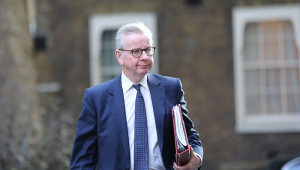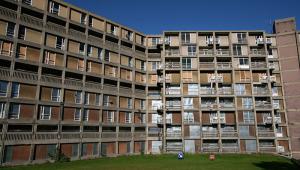17 May 2002
The pay deal, which covers non-pay review body groups such as ancillary, clerical, technical and ambulance staff, has been hailed as inflation-busting by some sections of the media. In fact the increase of 3.6%, or £400 a year, is modest and very much in line with recent annual awards.
Some of the lowest-paid health workers – such as hospital cleaners on £4.20 an hour or administrative staff on less than £9,000 a year – will get increases of 6% to 7%. And laboratory and technical assistants stuck at the top of their grades will get rises of more than 7%.
But these headline-grabbing percentages are not new money, says Unison assistant national officer Kevin Greene. 'They have simply been achieved by moving some of the most shamefully low grades up by a couple of salary points – 6% of peanuts is still peanuts. There was clearly a case for more,' he adds.
Health minister John Hutton describes the settlement as 'fair and affordable', and indicative of the government's willingness to tackle low pay and recruitment and retention problems. A spokesman for the NHS Confederation echoed this view.
However, the deal – which falls far short of the 5%, or £1,000 a year, the unions asked for – has been greeted less enthusiastically by the King's Fund health think-tank. 'The impact on the workforce of these minimal rises is likely to be paltry and insignificant,' a spokesman told Public Finance.
And no progress has yet been made on Unison's campaign to reduce ancillary workers' 39-hour working week. Even with the agreed rise, their pay rates and working conditions fall far short of what is needed to run a modern health service, says national officer Yvonne Cleary.
Meanwhile rank-and-file police officers have done somewhat better. While certainly not – in the chancellor's parlance – getting 'something for nothing', the deal secured last week appears to have placated, if not pleased, all sides.
After months of tortuous negotiations, during which 10,000 police officers marched on Parliament, the agreement boosts officers' basic salary in return for a 15% cut in the quantity of overtime over three years.
The Police Federation has declared the deal a victory for its 126,000 officers, especially its retention of current overtime rates, which the home secretary was seeking to cut back severely.
An extra £200m a year is to be invested in policing 'to safeguard living standards, improve recruitment and allow officers to concentrate on policing', says federation chair Fred Broughton. 'Our five demands have been met.'
Graham Baird, senior negotiating officer for the Police Negotiation Board, calls it 'a very good deal, one that will add flexibility to the force and reward officers at the sharp end'. Special priority payments of between £500 and £5,000 have been agreed to encourage more officers to sign up for understaffed shifts.
If peace is (sort of) breaking out between the police and the Home Office, it has a lot to do with the government's anxiety to drive through reform – and the priority being given to tackling crime. 'Crime is high up the political agenda, and Blunkett has been pursuing police reform with great vigour,' says Baird. 'These factors underpin the latest agreement.'
But health is a political priority, too. Where exactly do all these priorities leave local government workers who have been offered less than the average gained by NHS staff?
A lot further down the public sector food chain, say their union leaders, who have called a one-day strike this week in support of London weighting increases – and will begin balloting 1.4 million local government officers on June 10 over industrial action in support of their pay claim.
The summer of discontent may yet be upon us. But for the police and some NHS staff, it appears to have been postponed.
PFmay2002



















